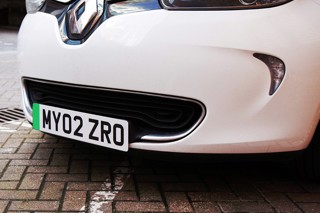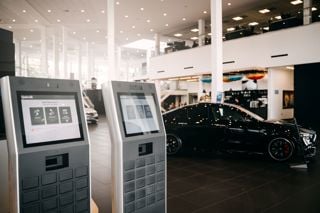Millennials (24-39 year olds) are expected to lead a car ownership ‘boom’ that will benefit the post-COVID car retail sector, according to the 2020 EY Mobility Consumer Index.
It found that, while almost a third of people without a car intend to buy one in the next six months as consumers look for new methods of mobility due to the coronavirus pandemic, Millennials will represent 45% of all first-time car owners.
The study, which surveyed more than 3,300 consumers across nine countries, also revealed that one-in-five (20%) people who already own a car would be open to purchasing an additional vehicle.
David Borland, EY UK & Ireland automotive leader, said: “The Covid-19 pandemic has contributed to a tumultuous year for the automotive sector, significantly denting consumer confidence in the UK, and this will be further exacerbated by the second national lockdown.
"However, despite showrooms closing until at least December, there is a strong view that dealers are much better prepared this time around, having adapted sales processes and embraced new technologies allowing consumers a more immersive digital sales and contactless experience.
“If, as the Mobility Consumer Index suggests, there is going to be a millennial car ownership boom, the way manufacturers and dealers interact with these buyers will be crucial to securing market share.
"Careful consideration needs to be given to targeting this distinct customer group, offering the products and services that meet their specific needs and wants – with a particular focus on making these available online and through the channels that millennials are comfortable using.”
In the UK, 27% of respondents said they are likely to buy a car in the next six months, with a slant towards used car (16%) rather than new (11%).
More than three-quarters (78%) of respondents say that they are going to be more likely to use their cars for travel in a post-pandemic world, with millennials making more than half of that number (52%).
Only 6% of non-car owners are looking to purchase a purely electric vehicle, while 23% said they are looking to buy a hybrid.
The survey also found that public transport will be severely hit, with a 69% reduction in public transport use for work, a 61% fall in usage for leisure and entertainment pursuits, and a 53% decline for household and social travel.
Across the UK, travel for work declined 54% (the smallest decline across the Index) and the third highest decline (42%) for household and social travel.
Respondents from Italy (47%) and Germany (46%) are more likely to purchase a new car. Meanwhile, respondents from China were most likely to increase their car usage (90% of respondents), closely followed by India (85%) and Germany (81%).



















Login to comment
Comments
No comments have been made yet.